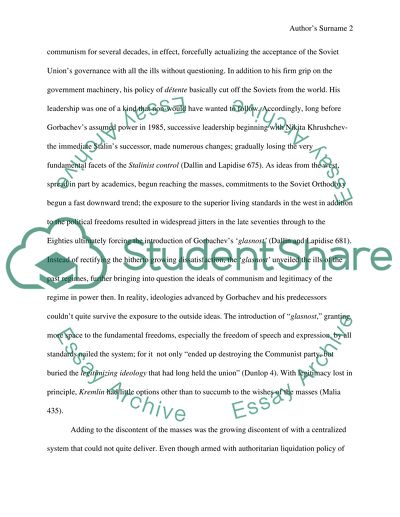What were the major reasons for the collapse of the Soviet Union in Essay. Retrieved from https://studentshare.org/history/1630585-what-were-the-major-reasons-for-the-collapse-of-the-soviet-union-in-1991
What Were the Major Reasons for the Collapse of the Soviet Union in Essay. https://studentshare.org/history/1630585-what-were-the-major-reasons-for-the-collapse-of-the-soviet-union-in-1991.


